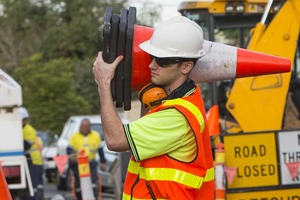What Qualifies as a Work-Related Injury?
Just because your injury did not occur while actually performing your job, it still may be a work-related injury. In order to establish your right to compensation under Pennsylvania’s workers' compensation laws, an injured employee must show that they were injured “in the course of employment.” However, this does not mean that an employee must actually be “working” at the time they are injured to receive workers' compensation benefits. This means that an employee injured while taking their lunch break or falling in the parking lot may still be entitled to compensation benefits.
There are two different analyses that courts will use to determine whether an employee was injured in the court of their employment.
Employee is Furthering Employer’s Business or Affairs. The first analysis looks at whether an employee, whether on or off the employer’s premises, is injured while actually engaged in the furtherance of the employer’s business or affairs. Even if you are not actively “working,” and are taking a break for lunch, to use the bathroom or to smoke, your injury could qualify is a work-related injury. Under the “personal comfort doctrine,” an employee’s inconsequential or innocent (such as using the bathroom or having lunch) departure from work during regular working hours is still considered to be furthering the employer’s business. Courts have recognized that these brief periods better enable employees to perform their job and therefore are furthering the employers business.
Employer Not Actually Engaged in Furthering Employer’s Business or Affairs. The second analysis is used when an employee is not engaged in furthering the employer’s business or affairs at the time they are injured. In those situations, the employee must show that: 1) they were on the premises of the employer, or where the employer’s business or affairs are being carried on; 2) they are required by the nature of their employment to be present on the employer’s premises; and 3) sustains injuries caused by the condition of the premises or by the operation of the employer’s business or affairs on the premises.
In simpler terms, the second analysis is generally applied when an employee is injured on the employer’s premises or in the parking lot. If you are injured while entering or leaving the work-site usually qualifies because it is a necessary part of employment. For example, an employee who slips and falls on ice in the office parking lot while coming into work in the morning would likely be found to have a work-related injury.
Many of these determinations are fact specific and will vary from case-to-case. If you were injured at work and believe you have a work-related injury, contact the workers' compensation attorneys at Freeburn Law to discuss your rights.



